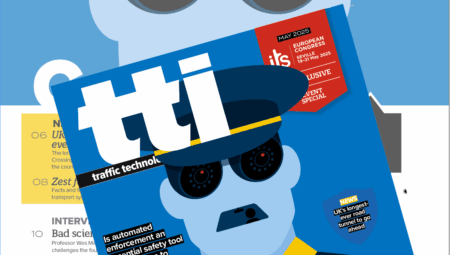The iMOVE CRC consortium’s first research project will be the safety evaluation and user perception study of Australia’s largest on-road testing trial of cooperative vehicles and infrastructure, which has just been announced by the Queensland government.
Comprised of 45 industry, government and research partners, the iMOVE CRC consortium will be working alongside Queensland’s Department of Transport and Main Roads (TMR) and the Queensland University of Technology (QUT) on research that will be conducted as part of the Queensland Cooperative Intelligent Transport Systems (C-ITS) Pilot Project. Delivered as part of an on-road field operational test (FOT) of several safety applications, the Pilot will involve around 500 private and fleet vehicles retrofitted with C-ITS devices that enable vehicles to ‘talk’ to other vehicles, infrastructure, road operations systems, and cloud-based data sharing systems. The large-scale, three-and-a-half-year A$2.6m (US$2.1m) project will commence with the design and equipment-testing phase, with the nine-month on-road trial to be staged in Ipswich, Queensland in 2019.
The C-ITS Pilot project is part of the larger Cooperative and Automated Vehicle Initiative (CAVI) being delivered by TMR to help prepare for the arrival of new vehicle technologies with safety, mobility and environmental benefits on Queensland’s roads. The CAVI project will also include the testing of a small number of cooperative and highly automated vehicles on South East Queensland roads, as well as investigate options for using these emerging technologies to benefit pedestrians, cyclists and motorcycle riders.
Prof. Andry Rakotonirainy from QUT’s Center for Accident Research and Road Safety, which is conducting the safety evaluation component of the Pilot, said, “Validating the effectiveness of C-ITS for safer and more efficient transportation in a real environment will be examined as part of this project, as well as analyzing driver behavior, acceptance of, and willingness to use, the technology. By utilizing real-life traffic situations, including roadworks zones, arterial roads and motorways, we have an opportunity to consider if the system operates in the way it is intended, and does it result in the desired behavior responses for all drivers.”
Queensland’s Minister for Transport and Main Roads, Mark Bailey, said, “These rapidly developing technologies have the potential to significantly reduce crashes and crash-related gridlock, as well as reduce vehicle emissions and fuel use over coming decades. Along with our research partners from QUT, and the iMOVE CRC team, I look forward to seeing how these new technologies deliver safety and societal benefits to all road users.”




